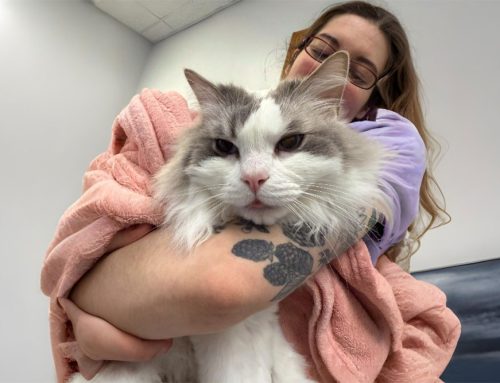As pet owners, we all want our furry friends to live long, happy, and healthy lives. But pets can’t always tell us when something’s wrong. That’s why it’s so important to be aware of subtle signs that might indicate a potential health issue. Catching these early can make a world of difference in preventing serious complications and keeping your pet feeling their best. At Animal Urgent Care of Oconomowoc, we’re here to help you understand what signs to look for and when it’s time to bring your pet in for a visit.
Changes in Appetite and Drinking Habits
One of the first things you might notice when your pet isn’t feeling well is a change in how much they eat or drink. If your pet is suddenly eating less or not interested in food at all, it could be a sign of anything from dental issues to more serious conditions like kidney disease. On the other hand, if your pet is drinking a lot more water than usual, this could also be a red flag for conditions like diabetes or even a urinary tract issue.
What You Can Do: Try offering different types of food to tempt your pet, and always make sure they have access to fresh, clean water. But if these changes persist, don’t wait too long to consult your veterinary team.
Gastrointestinal Issues
Digestive problems like vomiting, diarrhea, constipation, or bloody stools can be pretty alarming. Not only are these symptoms uncomfortable for your pet, but they could also point to something more serious like parasites, food intolerance, or even inflammatory bowel disease.
How to Help: Keep your pet on a consistent, balanced diet and avoid feeding them table scraps or human food, which can upset their stomach. Regular deworming and parasite control can also prevent many common digestive problems. If symptoms like vomiting or diarrhea last more than 24 hours, it’s time to visit the vet.
Respiratory Problems
If your pet is coughing, wheezing, sneezing, or having trouble breathing, it’s time to pay attention. Respiratory issues can be caused by anything from allergies to more serious conditions like pneumonia or heart disease. Labored breathing or gums that look pale or blue are signs that your pet might not be getting enough oxygen—a situation that needs immediate veterinary care.
What You Can Do: Make sure your pet is up to date on vaccines, particularly those that protect against respiratory infections. Minimize their exposure to airborne irritants like smoke or strong cleaning chemicals. If you notice any signs of respiratory distress, don’t hesitate to seek veterinary help right away.
Urinary Changes
Changes in your pet’s urination habits can be a clear sign that something isn’t right. Frequent urination, blood in the urine, straining to go, or having accidents indoors may point to urinary tract infections, bladder stones, or kidney disease.
What to Watch For: Encourage your pet to stay hydrated by always providing fresh water, and give them regular bathroom breaks. If you see any of these symptoms, call your vet immediately—urinary issues can become serious quickly.
Skin and Coat Issues
Your pet’s skin and coat say a lot about their health. If your pet is scratching excessively, losing fur, or you notice bumps, redness, or open sores, they could have allergies, parasites, or even an infection. These issues can cause a lot of discomfort and may worsen if left untreated.
How You Can Help: Regular grooming and flea/tick prevention are key to keeping your pet’s skin and coat healthy. If you spot any unusual skin changes, schedule a visit with your vet to get ahead of any potential problems.
Lethargy and Behavioral Changes
If your pet seems unusually tired, is hiding more than usual, or has suddenly become aggressive, these are all signs that something might be off. Changes in behavior can indicate illness, pain, or emotional stress.
What to Do: Keep your pet engaged with regular playtime and interaction. If you notice significant changes in their behavior, especially if they seem to be in pain or discomfort, a vet visit is a good idea. Behavioral changes are often the first sign that something isn’t right, so trust your instincts.
Mobility Issues

If your pet is limping, seems stiff, or is reluctant to jump or move around, they may be experiencing joint pain, arthritis, or even a more serious injury. These mobility issues can develop slowly over time or appear suddenly.
What to Watch For: Keeping your pet at a healthy weight is crucial for their joint health. If you notice any mobility problems, supplements for joint support or physical therapy might help, but it’s best to have your vet assess the situation, especially if the issue seems to worsen.
Pets Use Subtle Signs to Communicate
Keeping an eye on your pet’s health and knowing when to seek veterinary care is one of the most important things you can do as a pet owner. From changes in appetite to mobility issues, these signs are your pet’s way of telling you something’s wrong. If you notice any of these warning signs, don’t hesitate to reach out to us for professional advice from our team.







Leave A Comment